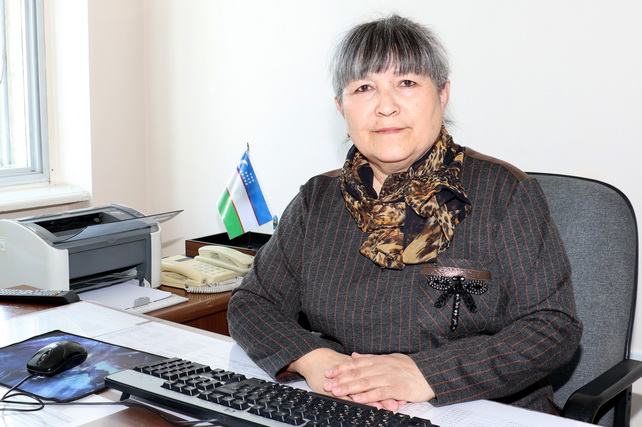
Forum “Dialogue of Declarations”: A Path to Interfaith Peace and the Protection of Freedom of Religion
Forum “Dialogue of Declarations”: A Path to Interfaith Peace and the Protection of Freedom of Religion
Tashkent, Uzbekistan (UzDaily.com) — From 10 to 13 September 2025, Tashkent and Samarkand will host the Second International Forum “Dialogue of Declarations.”
The event is organized by the Institute for Strategic and Regional Studies (ISRS) under the President of the Republic of Uzbekistan in cooperation with the U.S. NGO “Love Your Neighbor Community” (LYNC), with the support of the Committee on Religious Affairs, the Center for Islamic Civilization in Uzbekistan, the Ministry of Foreign Affairs of the Republic of Uzbekistan, and the Samarkand regional administration.
ISRS Deputy Director Shafoat Nurullaeva shared her views on the significance of the upcoming forum.
According to her, since 2016 the international community has organized a series of forums in Marrakesh, Mecca, Jakarta, Potomac, and Punta del Este to promote enlightenment, tolerance, and the protection of religious freedoms. These meetings resulted in the adoption of key conceptual documents — the so-called Declarations.
Uzbekistan responded to this call by hosting the first high-level Forum “Dialogue of Declarations” in May 2022. The five-day program in Tashkent, Samarkand, and Bukhara brought together leading religious scholars, theologians, and legal experts from countries including the United States, the United Kingdom, Austria, Pakistan, and Indonesia, as well as national specialists from government bodies, law enforcement agencies, and the clergy. The forum also featured high-ranking representatives of the Muslim World League, the U.S. Commission on International Religious Freedom, the governments of the UK and Indonesia, and other prominent religious and legal figures.
The outcome of the first forum was the adoption of the Bukhara Declaration, later recognized as an official document of the 76th session of the UN General Assembly. The chambers of the Oliy Majlis of Uzbekistan also issued a joint statement supporting its principles, underlining the importance of parliamentary oversight in safeguarding human rights and protecting citizens’ interests as enshrined in both international instruments and national law.
The adoption of the Bukhara Declaration reaffirmed the global relevance of Uzbekistan’s model of fostering a tolerant society where people of diverse nationalities, faiths, and beliefs coexist peacefully. The forthcoming second forum demonstrates that Uzbekistan not only shares the values enshrined in international Declarations but also implements them consistently in practice.
The Deputy Director emphasized that the forum’s regularity and broad international representation highlight recognition of Uzbekistan’s state policy on freedom of religion and interfaith harmony. It also reaffirms the country’s firm commitment to openness, tolerance, and generosity, while providing a unique platform for sharing best practices on peaceful coexistence.
The second forum is expected to welcome about 50 leading scholars, theologians, experts, and officials from 15 countries, including the United States, the United Kingdom, China, Saudi Arabia, the United Arab Emirates, Indonesia, and Central Asian states. Among the high-level guests will be Yusuf Muhammad Aldobeay, Assistant Secretary-General for Political Affairs of the Organization of Islamic Cooperation; Abdul Rahman Al-Zaid, Assistant Secretary-General of the Muslim World League; Robert Rehak, head of the International Religious Freedom Alliance; and others. Video messages will also be delivered by Mohammed Al-Issa, Secretary-General of the Muslim World League, and Sheikh Abdullah bin Bayyah, Chairman of the UAE Fatwa Council.
Over four days, the program will include plenary sessions addressing pressing issues of religious freedom and the role of civil society institutions in promoting interfaith harmony. Alongside the forum, three certification workshops will be held for Uzbek religious figures and civil servants, as well as a side event for women engaged in religious affairs. Presentations of best international practices in interfaith dialogue and tolerance will also take place. Foreign participants will visit Samarkand, a city of great spiritual and cultural significance for representatives of many faiths.
The forum aims to highlight Uzbekistan’s far-reaching reforms in promoting tolerance and interethnic harmony. Notably, a new edition of the Law “On Freedom of Conscience and Religious Organizations” was adopted in 2021, incorporating recommendations from the Venice Commission of the Council of Europe and the OSCE Office for Democratic Institutions and Human Rights. In addition, the updated Constitution explicitly enshrines the principle of freedom of conscience and prohibits the imposition of religious views in the framework of a secular state. In February 2025, Uzbekistan also adopted the Concept on Freedom of Conscience and State Policy in the Religious Sphere, setting priorities and goals for implementing constitutional guarantees of religious freedom.
The forum will also serve to share Uzbekistan’s experience in building a stable and inclusive environment in a multiethnic and multi-faith society, rooted in the country’s historical traditions of peaceful coexistence and commitment to democratic principles of secularism, freedom, equality, and social justice. International experts increasingly view Uzbekistan’s model of religious tolerance as an instructive and practical example worthy of study.
Participants will also discuss international experiences in ensuring religious freedom and fostering interfaith dialogue in diverse societies, with the aim of strengthening mutual understanding, identifying effective practices, and laying the groundwork for future humanitarian cooperation.
As for its outcome, the second forum is expected to adopt an Appeal to the international community calling for the protection of the rights of religious minorities, the elimination of discrimination based on faith, the promotion of religious education as a means to counter violent extremism, the affirmation of freedom of religion as a universal human right, and the encouragement of equality regardless of religious or cultural differences.
Overall, the Second International Forum “Dialogue of Declarations” is expected to make a meaningful contribution to strengthening tolerance, compassion, mutual respect, and peaceful coexistence in today’s diverse world.